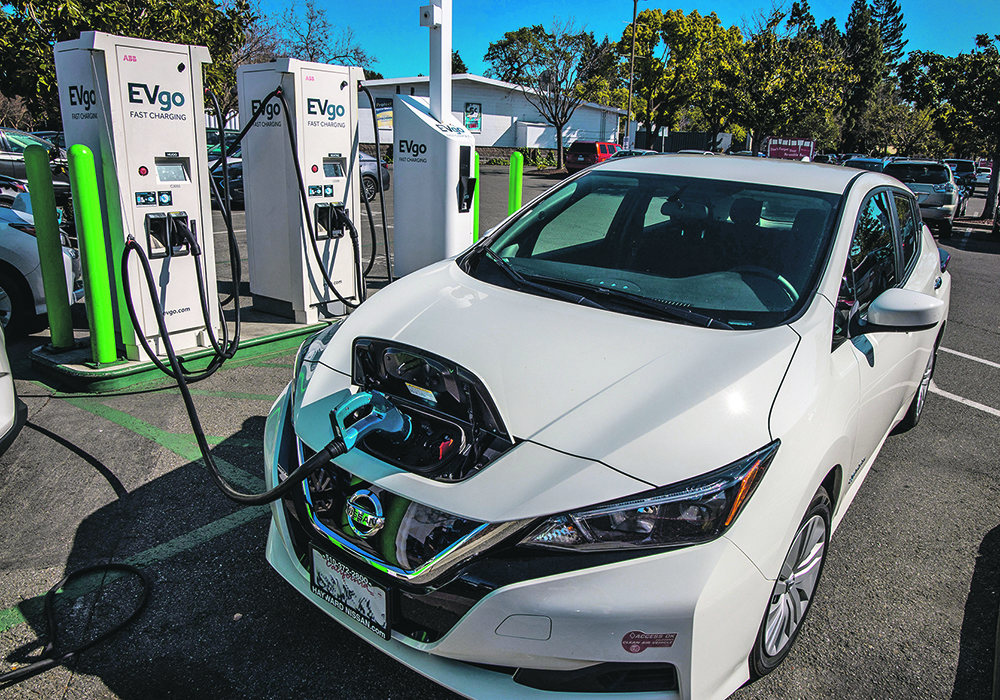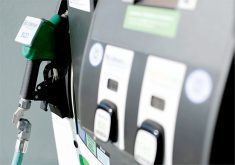Canada has committed to a goal in which all new vehicle sales in the country will be zero emission by 2035
WINNIPEG — U.S. farm groups are suing the Environmental Protection Agency, claiming its policy on electric vehicles picks “one tool for fighting climate change over others.”
On June 13 the American Farm Bureau Federation, the National Corn Growers Association, the American Petroleum Institute and a group of car dealers filed a lawsuit in the D.C. Circuit Court of Appeals.
The lawsuit claims that new tailpipe emissions standards for vehicles, which the EPA finalized in March, are discriminatory against technologies other than EVs.
Read Also

Chinese offer complicates canola marketing
Recently the Chinese ambassador indicated that there would be a potential deal between Canada and China regarding the current tariff war.
“While it could take decades to get enough electric vehicles on the road to significantly lower GHG emissions, ethanol is a critical and effective climate solution that is available now. We have tried to make this case to EPA to no avail, and now we will make our case in court,” said National Corn Growers Association president Harold Wolle, in a press release.
The corn growers say the new rules will require 68 percent of new passenger vehicles and 43 percent of medium duty trucks and vans to be electric by 2032.
Ian Thomson, president of Advanced Biofuels Canada, understands why farm groups and others have filed the lawsuit in America.
Historically, government policies around emissions have focused on the outcome but policy makers shouldn’t pick technology winners and losers, he said.
“I kind of get why they’re suing. They’re suing a government that is (selecting) a technology. And the people who are suing are saying ‘hey, our fuel can do the same (thing)’.”
Canadian policies on vehicle emissions also choose a particular solution. The federal government has committed to a goal in which all new vehicle sales in the country will be zero emission by 2035.
That mandate effectively favours battery-powered cars and trucks over other solutions, Thomson said.
“If the objective is to reduce greenhouse gases, why wouldn’t you want to have every available tool at your disposal? It’s not logical.”
As well, the term “zero emission” is not accurate, Thomson said. Battery-powered vehicles do have emissions because electricity generation and vehicle manufacturing do emit greenhouse gases.
He said many tailpipe policies in North America are based on the California model. That state had massive problems with smog in the 1970s and ‘80s, so it imposed strict regulations on vehicle emissions.
“California, literally, doesn’t want to have tailpipes (on vehicles)… (But) California has a very different set of circumstances than the bulk of Canada.
“I get why they don’t want to have diesel trucks running through neighbourhoods in Los Angeles. But that’s different than a truck running through Brandon, Manitoba.”
As for the U.S. lawsuit, the American Farm Bureau Federation and the corn growers say the EPA has overstepped its congressional authority by picking one tool for fighting climate change over other technologies, although that statement isn’t entirely accurate.
White & Case, a global legal firm, says the new emissions standards for vehicles manufactured from 2027 to 2032 do not require the use of specific technologies.
“Automakers may decide which technologies to achieve the standards, such as advanced gasoline engines and transmissions, improvements to tailpipe controls, and electrification,” White & Case said in March.
“Nonetheless, EPA projects that the influence of these standards, in conjunction with other market developments like incentives available under the Inflation Reduction Act, will result in plug-in electric vehicles accounting for 68 percent of new light-duty vehicles by model year 2032.”
















